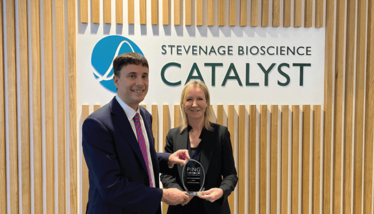A View on the Future of R&D From the UK
Pharma and healthcare execs in the UK discuss the future of pharma at the 2021 PING conference

Bringing together prominent voices from across the UK’s pharmaceutical supply chain, the Pharmaceutical Industry Network Group (PING) – a professional networking group for British pharmaceutical companies – hosted a virtual gathering in November. Among the key focuses of the event was the country’s COVID-19 response and how it will maintain its position as a leader in science innovation.
Ben Osborn, Pfizer UK Country Manager, and ABPI President, took the opportunity to comment on the accelerated drug development process triggered by the need for COVID-19 interventions. Pfizer and BioNTech produced their first COVID-19 vaccine in 259 days – a record-breaking time for pharmaceutical R&D. He cited creating a shared mission, understanding the value of innovation, as well as the importance of health as factors in the success story, and encouraged other businesses to consider them to protect the UK’s economy. He shared his view on the British government's Life Science Vision, a ten-year plan outlining the development of the country's life science sector. “There has never been a more exciting time for life sciences and the opportunity to bring breakthroughs to change patients' lives. The Government’s 'Life Sciences Vision' gives a bold ambition, so we must all now partner and translate words into meaningful action,” he said.
But a new attitude towards drug development already seems to have taken hold. During the conference, it was explained that the UK’s medicines regulator, the MHRA has been working closely with the National Institute for Health Research throughout the pandemic to establish an improved clinical trial framework. The partners assessed the viability of new trial designs to help create more efficient processes to deliver results for patients – and they believe their work will have a knock on effect on the approval process.
Kirsty Wydenbach, Expert Medical Assessor at MHRA discussed how the agency intends to take a lifecycle approach to drug development – helping to link all aspects of R&D from bench to commercialization. She also explained how the MHRA would adapt the rolling review model it adopted during the pandemic to meet the needs of medicines for other diseases. “The MHRA ambition is about putting patients first, becoming a truly world-leading, enabling regulator and protecting public health through excellence in regulation and science. Support for innovation is a key part of that ambition. We want to hear from researchers and developers early so we can help them stay on track, and so we can learn and become an even more industry-friendly regulator,” she said.

Following on from the event, PING also announced the winner of its annual Innovation Award – crowning Stevenage Bioscience Catalyst the winner of the prize for its commitment to supporting the cell and gene therapy industry. In a statement, Paul Gershlick, Chair of PING and Head of Pharmaceuticals and Life Sciences at the law firm VWV said, “We heard a lot at the recent 2021 PING Conference [...] and Stevenage Bioscience Catalyst ticks both boxes. The campus was certainly innovative when it opened, and its building and design were made with collaboration in mind. What it has achieved in a relatively short space of time makes it a very worthy winner.”
To find out more about PING visit: https://www.vwv.co.uk/law-sector/pharmaceutical-law-life-sciences
PING is run by VWV, a law firm with a specialism in life sciences.
After finishing my degree, I envisioned a career in science communications. However, life took an unexpected turn and I ended up teaching abroad. Though the experience was amazing and I learned a great deal from it, I jumped at the opportunity to work for Texere. I'm excited to see where this new journey takes me!



















